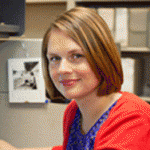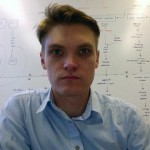Data Curation – Question 4
By
Gretchen Gueguen, Inna Kouper, Sam Meister, Trevor Muñoz
June 2013
4What has been your most enlightening moment in your work with data curation?
I can clearly remember the first time I realized the essential paradox in the kind of work I do with older data. A researcher working on a biography asked me if I could recover the data from 99 5.25” and 3.5” floppy disks created between the mid-1980s and early-1990s. I spent dozens of hours imaging the disks, exporting the contents, extracting metadata, and weeding out the file slack and deleted data.
Read this ResponseI find all aspects of my work enlightening: working in large and small collaborations, interacting with diverse groups of people, building tools to address the needs of different communities, engaging with researchers, and trying to understand the similarities and differences in data practices across epistemic cultures.
Read this ResponseTo date, some of my most enlightening moments have been working with and learning from data creators, a process that I hope to expand in the future. A recent series of interactions with a creator who donated a collection of architectural drawings illustrates the types of valuable information that may be exchanged during such meetings. In this case, the Library had already acquired a set of paper drawings, and we were considering the acquisition of a set of AutoCAD drawing files from the same donor. Compared to the range of file formats within our existing collections, AutoCAD files represented a significantly new endeavor in relation to the inherent complexity of these digital objects and preservation concerns due to the proprietary nature of the file format itself.
Read this ResponsePreparing the lectures for an introductory training course on data curation for humanists led to my most enlightening moment so far. In trying to explain the role of social factors in supporting preservation and the re-use of data, I started to see more points of convergence between data curation and work on “crowdsourcing” and closely related ideas of public humanities. This convergence is an effect of the changed information environment for “scholarly” data.
Read this Response


